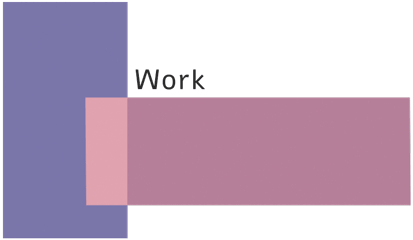
קצף ורוד // Pink Foam
צילום סטילס: נטשה שחנס

A row of men passes through the legs of an adolescent girl; a thief leads a judge who follows her crawling on fours; a general impatiently waits for his mare; a pimp barks like a dog for a client who admires his body; an actress playing Genet quotes the playwright’s rules for performing his play. A set of images in dialogue with Genet’s “The Balcony” is presented onstage and reexamines the relations between men and women, between fantasy and reality, and between desire and death. Grinding their teeth, the images strive to resist Genet’s dictums, but time and again the theatrical piece falls apart and inadvertently spits pink foam.
שורת גברים עוברת בין רגליה של נערה, גנבת מוליכה שופט הזוחל אחריה על ארבע, גנרל מחכה בקוצר רוח לסוסה שלו, סרסור נובח ככלב עבור לקוח המעריץ את גופו, שחקנית המגלמת את המחזאי ז׳נה מצטטת את כללי הביצוע שהוא קבע. רצף דימויים המתכתבים עם המחזה ״המרפסת״ מאת ז׳נה מוצג על הבמה ובוחן מחדש יחסים בין גברים לנשים, בין פנטזיה למציאות ובין תשוקה למוות. הדימויים חורקים שיניים ומנסים להתנגד להוראות הביצוע של ז׳נה, אבל שוב ושוב העבודה הבימתית מתפרקת ויורקת בעל כורחה קצף ורוד.
Process
The work was created between lockdowns during the spread of the COVID-19 pandemic.
Escaping from the chaotic reality to tightly closed rooms allowed us to immerse ourselves in theatre and delve into personal experiences and fantasies. While seeking ways of expression, the need for a revolutionary theatre rose. Facing an old theatrical structure, in which women are objects that serve clients for the sake of men performing monologues and mirroring each other, we felt the urge to resist and a desire for a freedom for women to act and play with their own experiences. The resemblance and difference between Genet’s brothel and an imagined theatre that put the woman’s experience at its center became the heart of the piece. Genet asserts that rebellion and the attempt to establish a new social order through theatre are bound to fail. This statement triggered a counteraction from us, which bore energy and delight, alongside a sense of pain from the inevitable failure.
על התהליך
העבודה נוצרה בין סגר לסגר בזמן התפשטות המגיפה והשפעותיה. הבריחה מהמציאות הכאוטית אל חדרים סגורים היטב אפשרה לנו לטבוע בעשייה תיאטרונית ולצלול לתוך חוויות פנימיות ופנטזיות. בתוך תהליך העבודה וחיפוש דרכי הביטוי, עלה הצורך בתיאטרון מהפכני. אל מול מבנה מיושן של תיאטרון, שבו הנשים הן אובייקט המשרת את הלקוחות עבור ביצוע של מונולוגים גבריים והשתקפויות של גברים זה בזה, נוצרה התנגדות ותשוקה לחופש פעולה ומשחק של נשים בחוויות שלהן. הדמיון והניגוד בין בית הזונות שיצר ז'נה לבין תיאטרון מדומיין המעמיד את החוויה הנשית במרכזו הפכו ללב העבודה. ז'נה קובע שהמרד והניסיון ליצור סדר חברתי חדש באמצעות התיאטרון נועדו לכישלון. אל מול קביעה זו נוצרה פעולת נגד, שהולידה אנרגיה והנאה לצד תחושת כאב מהכישלון הצפוי מראש.
Based on "The Balcony" by Jean Genet , translated by Yoel Taieb // Adapted and Directed by: Brachi Lipshitz // Dramaturgy and Lighting Design: Noa Elran // Set and Costume Design: Adiel Ariel, Yaara Zadok // Movement: Nataly Szylman // Music: Daniel Kiczales // Assistant Director: Eran Kraus // Artistic Counseling: Nir Segev // Actors: 3rd year students at Nissan Nativ Acting Studio, Jerusalem: , Eden Ankry, Dvir Ayelet Hashachar, Yasmin Bar-shalom Agmon, Adva Ben-Dor, Alon DeVries, Ran Duani, Ronen Golfur, Leah Junger, Aya Luft, Omer Meiri, Ayelet Ofir, Ben Oved Berkovich, Lior Shmuel, Adi Singer, Eduard Shprochman, Hodaya Weisenstern.
על פי ״המרפסת״ מאת ז׳אן ז׳נה // תרגום: יואל טייב// עיבוד ובימוי: ברכי ליפשיץ // דרמטורגיה ועיצוב תאורה: נועה אלרן // עיצוב חלל ותלבושות: עדיאל אריאל, יערה צדוק // גוף ותנועה: נתלי שילמן // עריכת פסקול: דניאל קיצ׳לס // הנחיית שחקנים: ערן קראוס// ליווי אמנותי: ניר שגב// שחקנים: תלמידי שנה ג׳ מחזור ל״א בית ספר למשחק ניסן נתיב ירושלים: איילת אופיר, אדוה בן דור, דביר איילת השחר, עדן אנקרי, יסמין בר שלום אגמון, בן עובד ברקוביץ׳//רונן גולפור// רן רחמים דואני// אלון דה פריז// הודיה וייסנשטרן// עדי זינגר// לאה יונגר// איה לופט// עומר מאירי// ליאור שמואל// אדוארד שפרוכמן

"אני לא מוכן שהשחקניות תחלפנה מילים כמו בית זונות במילים מהוגנות יותר. הן יכולות, אם הן רוצות, לא לשחק במחזה שלי: ישימו גברים במקומן. אם הן כאן, שתצייתנה לדבריי."
מתוך: אזהרה וכיצד יש לשחק את ״המרפסת״, ז׳אן ז׳נה, תרגום: יואל טייב













